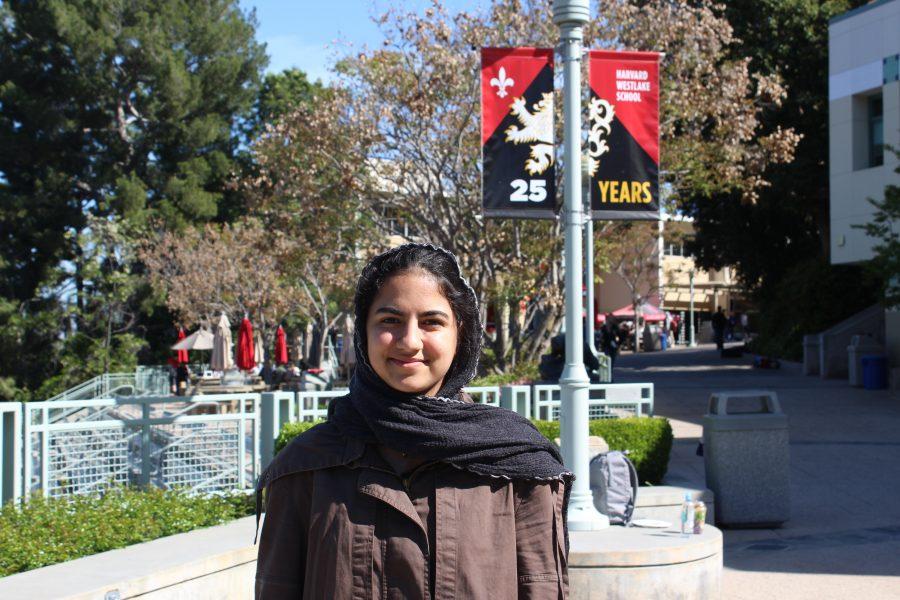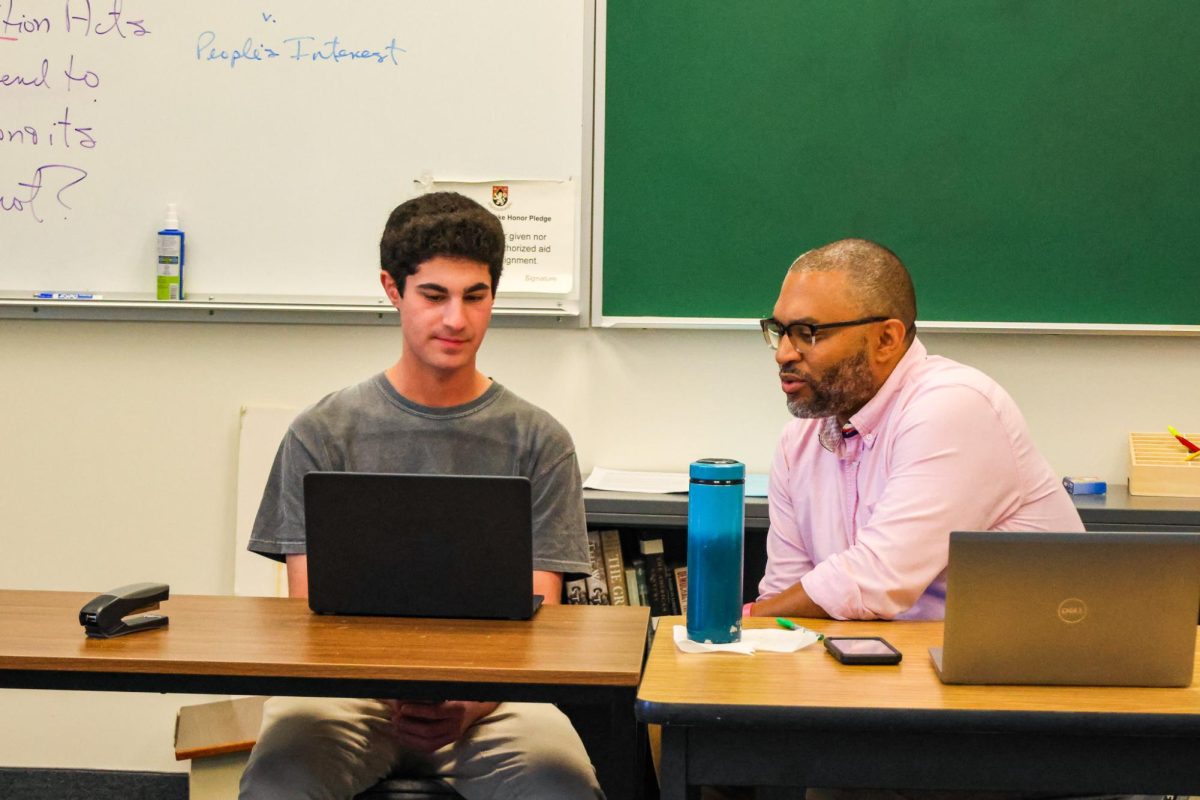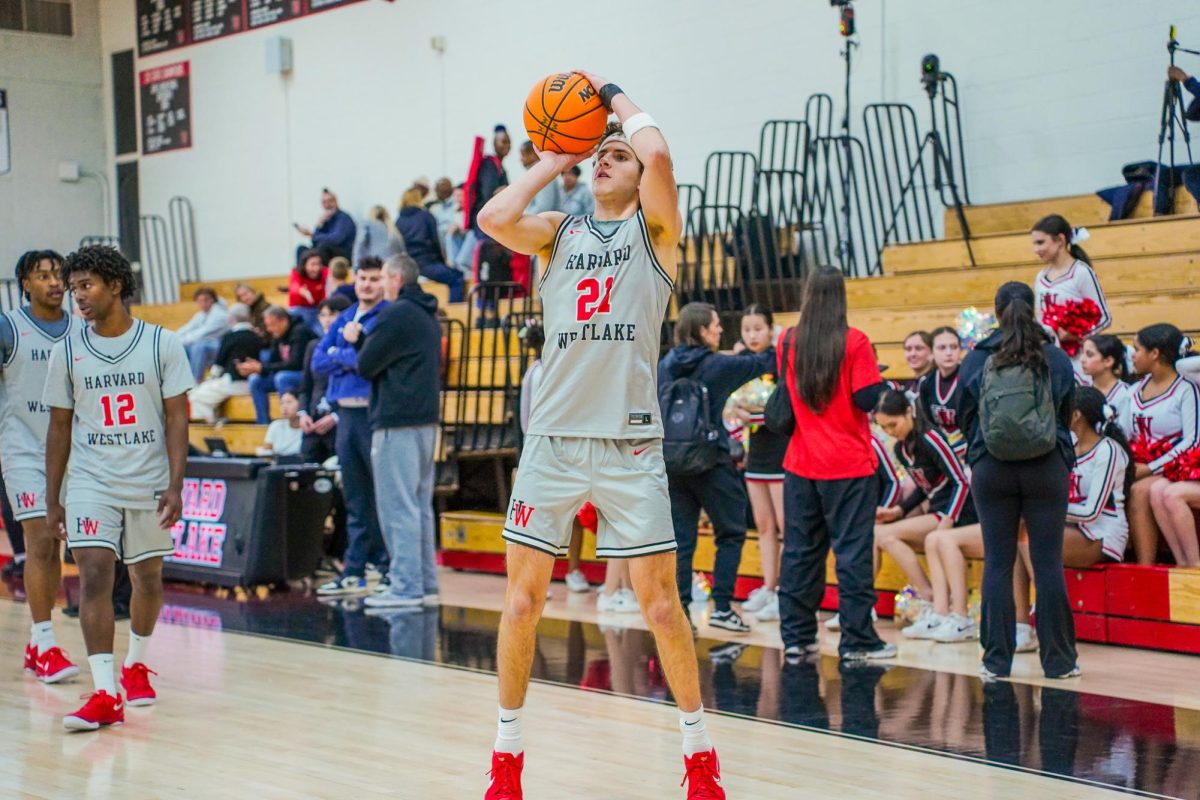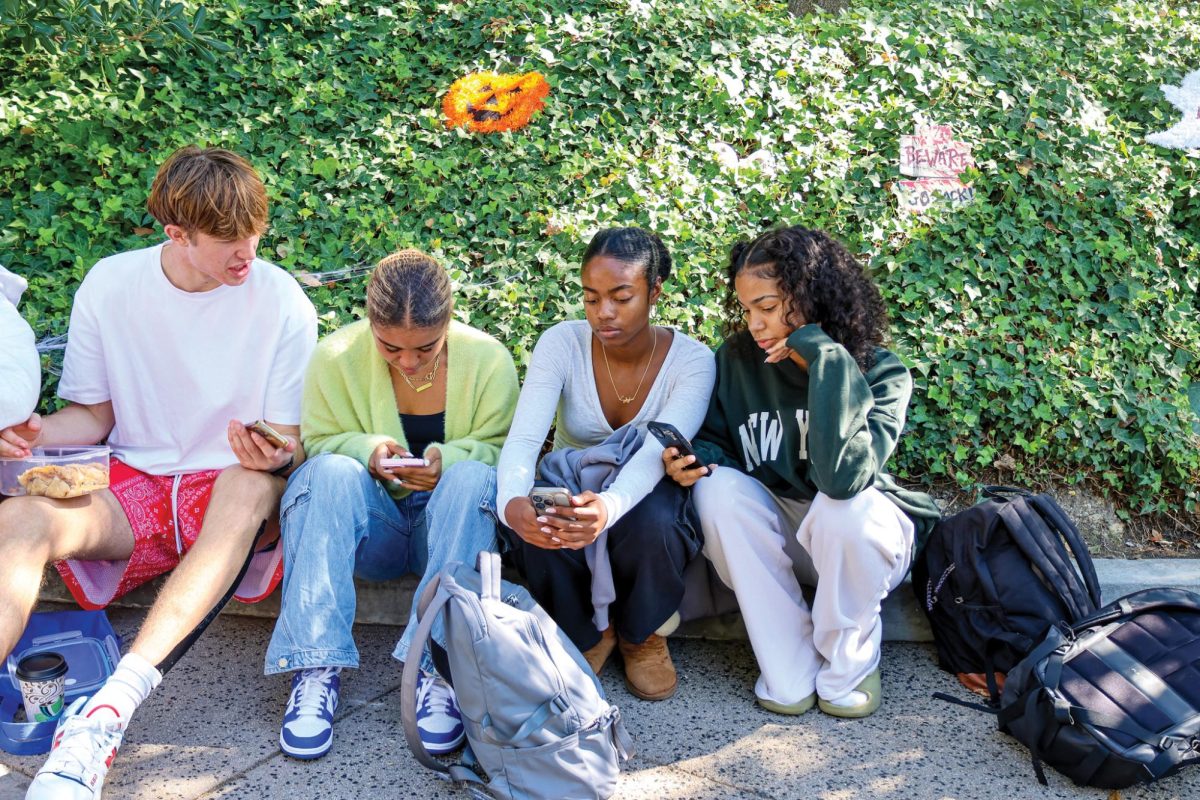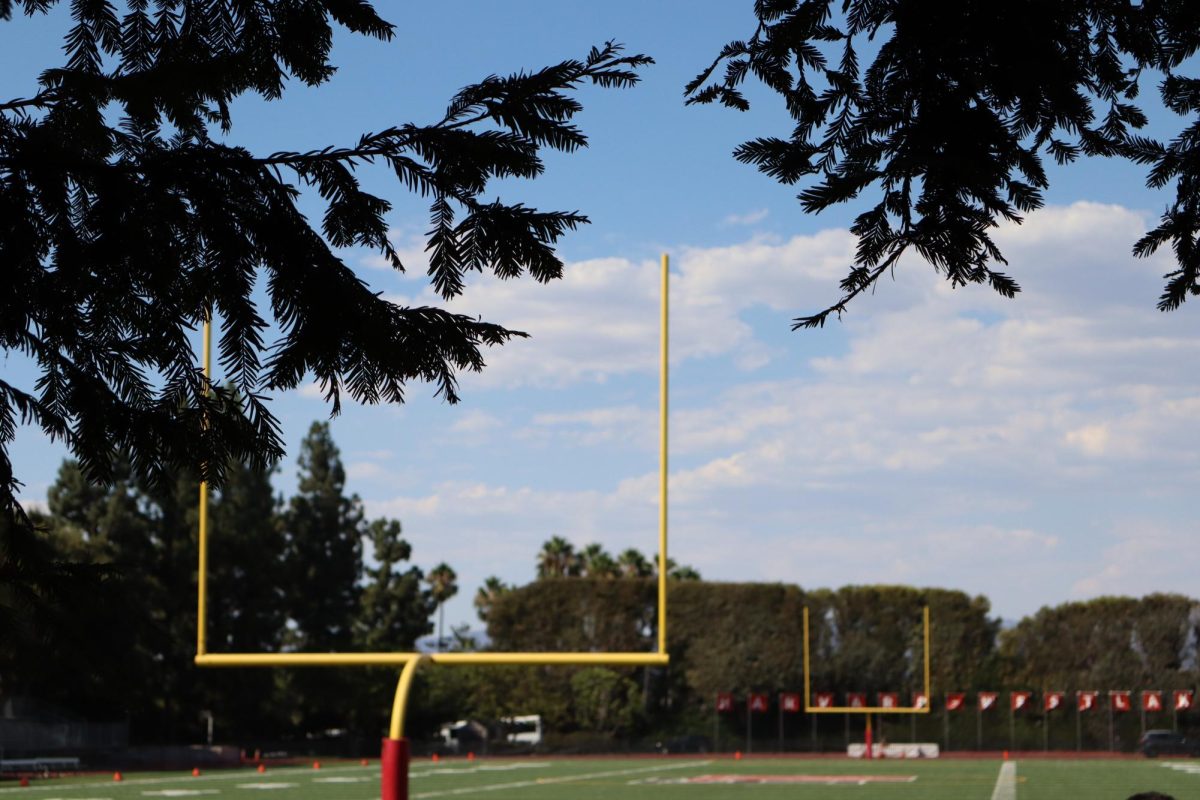With butterflies in her stomach, Nicole Bahar ’18 paused for a moment before stepping out of her car in the junior lot last Monday. Although the week ahead was a typical one, filled with tests, quizzes and assignments, it was also different. For the next five days of school, Bahar would be wearing a hijab, long pants and manteau, traditional garments worn by women in Iran.
Bahar said she was inspired to take action because of President Donald Trump’s proposed Muslim Immigration Ban and the resulting increase in Islamophobia and xenophobia.
“I’m trying to bring awareness to the fact that this religion does not change someone’s character,” Bahar said.
Prior to her social experiment, Bahar said she expected students to laugh or make insulting comments toward her and about the Islamic religion.
“I was surprised by the reactions that I got. [They were] mostly positive,” Bahar said. “I really did think I would get a lot more snide comments and judgmental stares, but it was mostly just curiosity.”
President Rick Commons said he hoped the student body supported Bahar during her social experiment.
“I hope that people are noticing and asking [questions] in ways that are respectful or even complimentary,” Commons said.
While Bahar received a primarily positive response from the community, she also heard a few comments that were not respectful. She said she was told she “looked so Persian” and asked sarcastically, “Have you recently discovered Allah?”
Bahar also said that she felt a growing sense of empathy for women throughout Iran, who are required by law to cover their hair, arms and legs.
“No matter rain or shine, women in Iran have to wear a hijab, due to the Islamic regime,” Bahar said. “If anyone looks down upon the Islamic religion, that’s their choice, but Iranian women don’t have that choice.”
Bahar described herself as more “culturally Muslim” than religiously Muslim.
However, she said has experienced Islamophobia, through both negative comments and unfair treatment in airports.
“When I was younger, I didn’t really understand why I had to go through so much screening,” Bahar said. “As I got older, I noticed that it’s because of our names and the way we look.”
In reflecting on her week-long social experiment, Bahar noted that while she did not receive the negative reaction she expected, she often felt self-conscious.
“All minorities experience some form of [unfair treatment],” Bahar said. “If I’m able to show that the religion of Islam isn’t dangerous and inherently violent, I think I’ve done my job.”



























